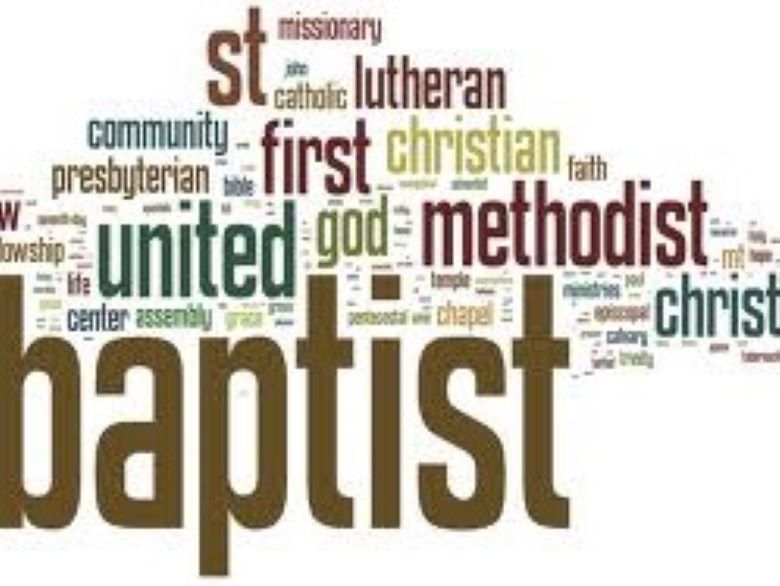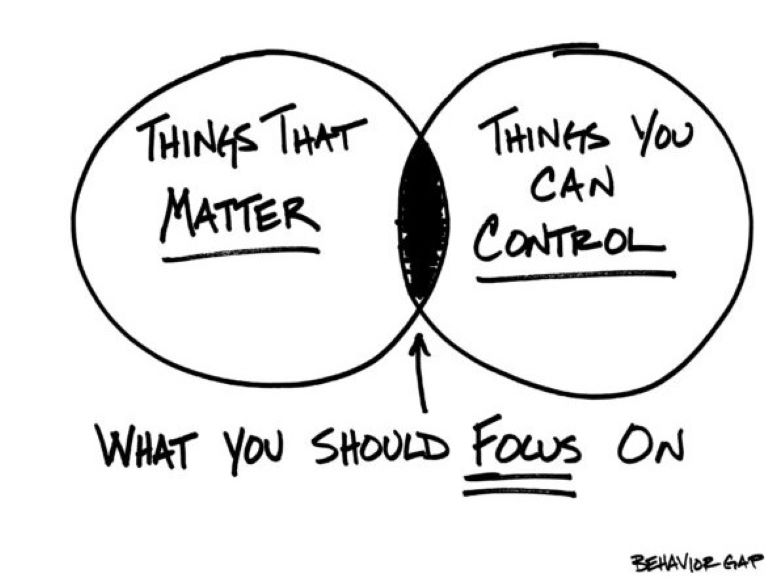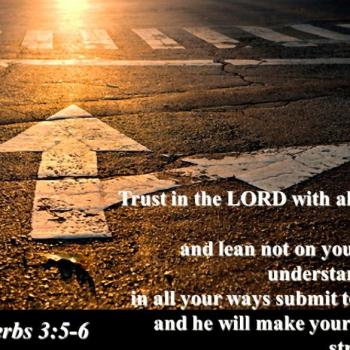Through him, with him, in him,
in the unity of the Holy Spirit,
all glory and honor is yours,
almighty Father,
for ever and ever.
Catholic Doxology

You Had One Job!
The last thing Jesus said before he left earth, a commandment known as the Great Commission, was:
“All authority in heaven and on earth has been given to me. Therefore go and make disciples of all nations, baptizing them in the name of the Father and of the Son and of the Holy Spirit, and teaching them to obey everything I have commanded you.” (Matthew 28:18-20a NIV)
I don’t see anything in those instructions about division, do you? I see “go and make disciples,” that is “followers.” I see “all nations,” which means that following Christ is a greater priority than differences in cultural background. I see “baptizing them in the name of the Father and of the Son and of the Holy Spirit.” Jesus is reminding us that it is the Holy Trinity that we are following, not a captivating church leader.
I also see “teaching them to obey everything I have commanded you.” “Everything” means EVERYTHING, not just the parts that make you comfortable, fit your political agenda or don’t require you to give something up. This commandment leaves no room for doctrinal differences. Jesus has clearly commanded the Church to simply teach obedience to that which He has already taught.
With this commandment…
Jesus did away with all the legalistic rules that the Pharisees had appended to God’s law to retain power and control over the Jews. Furthermore, with the divine authority that only He could have as the risen Son of God, he brought the world the only teachings that we would ever need to effectively follow Him back to God the Father, by the power and leading of the promised Holy Spirit.
In other words, the Great Commission formally put an end to religion.
Except that religion didn’t go away like it was supposed to.

(Public Domain)
Denominations
I appeal to you, brothers, in the name of our Lord Jesus Christ, that all of you agree with one another so that there may be no divisions among you and that you may be perfectly united in mind and thought. What I mean is this: One of you says, “I follow Paul;” another, “I follow Apollos;” another, “I follow Cephas;” still another, “I follow Christ.” Is Christ divided? Was Paul crucified for you? Were you baptized in the name of Paul? (1 Corinthians 1: 10, 12-13 NIV)
When Paul wrote this letter from Ephesus in about 54AD, he could already see in the church at Corinth the beginnings of what is possibly the greatest plague in the universal Church today: denominations.
People gonna people
You see, the problem with churches is that they’re made up of people. The problem with people is that, unlike Jesus, we are ruled by pride, which is the mother of all sin. We want to be right more than we want to be righteous (i.e., having a right standing from God’s perspective rather than our own).
Wherever a group of believers has the best of intent about disciple making, there is always going to be someone holding the group back. Not necessarily intentionally, but simply because people gonna people.
In the church at Corinth, the biggest purveyors of division were the high-status Gentile converts. They wanted the benefits of being a Christian without having to give up the benefits of their status and social lives.
Another problem the Corinthians were having is a problem many churches today still deal with—growth.
Now generally speaking, growth is a good problem for a church to have. It sure beats a declining membership!
However, the problem is that sometimes when churches grow, they eventually split. Frequently this is due to space constraints; however, it can also be intentional. A larger church may plant some members and leaders in another location to grow another branch of that church.
Where this can become a problem is that each individual church has its own leadership style. This can raise the twin specters of comparison and preference.
We Four, and No More
This is what Paul is addressing in the passage above. Some of the Corinthians preferred Paul for his straightforward doctrinal approach. Others preferred the flashiness of Apollos’ preaching style. Others preferred Cephas (that is, Peter), just by reputation. Then there were those who distanced themselves from the other groups by simply calling themselves “Christian,” but out of a spirit of exclusivity, not of inclusivity.
The point is that it is difficult to keep unity in mind and thought when people are not in close proximity. How much harder then must it be to try to “follow the teachings of Jesus” while not connected to a home church at all, as many are attempting to do these days.

A House Divided
“And let us consider how we may spur one another on toward love and good deeds. Let us not give up meeting together, as some are in the habit of doing, but let us encourage one another. . .” (Hebrews 10:24-25a NIV)
The Yellow Pages of my metropolitan area lists 354 churches. They are split into sixty-one different denominations. Some of these denominations have sub-denominations.
This makes for some interesting reading. We have four distinct kinds of Lutherans and seven assorted flavors of Baptist. We have an “Independent” Catholic Church (the word “Catholic” comes from the Greek cath holos, meaning “according to the whole” or “unified”). There are six Churches of Christ, five Churches of God (including two that are just of the God of Anderson, Indiana), and seven Churches of God IN Christ. We have seven independent churches, six interdenominational churches, 23 non-denominational churches and one church of “various denominations.” And we have forty-nine churches that just call themselves “Christian.”
So which one is the right one?
If I were to poll people from all 354 churches, I would bet that the majority would say, “OURS is the right one.” Many wouldn’t, but I imagine a lot would.
It’s simply human nature to believe that you’re the one getting it right. Any time we are exposed to a new idea that makes sense or makes us see the world or ourselves in a completely new light, we latch onto that idea and want to shout it from the rooftops. It may or may not be true, but we are attracted to it because it is new to us. (If this sounds far-fetched, then you must have home schooled your kids.)
Of course, many of these 354 churches work together and support each other. But some don’t. When churches are in opposition to each other, it is usually because of a doctrinal difference. It may be something as petty as the style of worship music, or it may be something much more significant, such as the authority of scripture.
The World is Watching
The causes, however, are not as important as the fact that division does exist within the church. Even more significant is the fact that this division is noticeable by those OUTSIDE the church.
If our job is to make disciples of all nations, how good of a job do you suppose we’re doing if we’re going to war with each other? Why would anyone want to be part of a movement that is divided against itself?
As it turns out folks outside the church are seeking Truth the same as we are. Some even acknowledge Jesus on a logical level, but don’t want to be part of a home church because of all the drama and division.
Even the simple fact that there are 354 churches to choose from in my area is overwhelming. It would take almost seven years to visit them all. Can you imagine going to the store for one item and having 354 assorted brands of it from which to choose. I’d stay home too.
Now of course, as Christians, we know that the Holy Spirit will lead us to where we need to be. However, non-Christians DON’T know that.
Logic and Reason
We must remember that agnostics are creatures of logic and reason. They need to see to believe. Because they have not received the Holy Spirit, they cannot follow His leading. The only thing they have to go on is what they see.
Which is us. And our division. Logic dictates that Truth and division cannot co-exist. Truth cannot be divided on itself just as Christ cannot be divided. If a person comes seeking Truth from a logical standpoint, they are also seeking unity. Where they do not find unity, they assume they have not found Truth.
So, they leave. They do not become disciples.
And we have failed in our primary mission.
(To find out how to break this cycle, come back for Part 2 this weekend. To make sure you don’t miss it, click on Free Newsletter at the top of this page and drop your email.)












